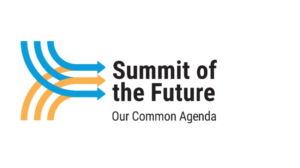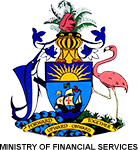Summit of the Future 2024: How ITC is advancing the ‘Pact for the Future’
19 Sep 2024
 Over halfway to the 2030 deadline to achieve the United Nations Global Goals, the 2024 SDG Progress Report presents a bleak picture: only 17% of the Sustainable Development Goal (SDG) targets are on track. Nearly half the targets have seen little to moderate progress and over one-third either stalled or regressed. The promises are in peril and threaten to leave many behind.
Over halfway to the 2030 deadline to achieve the United Nations Global Goals, the 2024 SDG Progress Report presents a bleak picture: only 17% of the Sustainable Development Goal (SDG) targets are on track. Nearly half the targets have seen little to moderate progress and over one-third either stalled or regressed. The promises are in peril and threaten to leave many behind.
The pressing challenges the world faces today—climate change, inequality, pandemics, and escalating conflicts—cannot be tackled by any single nation alone. They demand robust collective action and multilateral cooperation, which are precisely what Our Common Agenda aims to strengthen.
Our Common Agenda: A call to not fail
Amid the COVID-19 pandemic and the United Nations’ 75th anniversary in 2020, Our Common Agenda was initiated by the UN Secretary-General António Guterres in response to Member States’ call for a reinvigoration of global governance. While the 17 Sustainable Development Goals (SDGs) and their 169 targets define the “what” of global progress, Our Common Agenda aims to enhance the “how”—by improving and strengthening the multilateral system, particularly at the UN, that is needed to achieve the global goals.
After three years of consultations, Member States are near the finish line to adopt a Pact for the Future in September 2024 at the Summit of the Future. The Pact’s proposals are organized under five chapters or themes:
1) Sustainable Development and Financing for Development
2) International Peace and Security
3) Science, Technology and Innovation and Digital Cooperation
4) Youth and Future Generations
5) Transforming Global Governance.
In addition, the Global Digital Compact and a Declaration on Future Generations have been negotiated in parallel and will be annexed to the Pact.
Our work aligns with The Pact for the Future
The International Trade Centre (ITC) has championed the proposed commitments and actions in the Pact for the Future, notably in promoting digital transformation, youth engagement, and making the UN more future fit through the “UN 2.0” upgrades.
Additionally, ITC’s Executive Director Pamela Coke-Hamilton co-chaired the UNSDG Our Common Agenda Working Group, which in 2023 provided input into the policy proposals now being discussed by Member States and expected to be adopted as the Pact for the Future at the 79th Session of the UN General Assembly later this month.
Digital: To establish an inclusive global framework to overcome digital, data and innovation divides, Member States will agree on a Global Digital Compact, an annex to the Pact. ITC’s Digital Moonshot, now in its second year, is already delivering on many of the commitments in the Global Digital Compact.
For instance, ITC helps small businesses in accessing and competing in the digital economy, including supporting women, youth and other under-represented groups in business. To build on this progress, ITC works with wide-ranging partners to ensure cross-border data flows benefit small businesses and marginalized groups. Finally, ITC is building on its global public tools such as the Global Trade Help Desk and its SME Trade Academy, by strengthening its capacity-building to include making artificial intelligence work for small business.
Youth: ITC has a dedicated Youth and Trade strategy and programme, recognizing the importance of harnessing youth potential and directly supporting provisions in Chapter 4 on Youth and Future Generations in the Pact for the Future.
In close collaboration with the UN Youth Office, ITC continues to champion youth entrepreneurship and participation in decision-making fora. Ahead of the Summit of the Future ITC and partners will announce the 2024 Youth Ecopreneur Award winners in New York.
Data for a better future: Finally, the Pact emphasizes the need to strengthen the UN system, with a vision for a UN 2.0 that builds expertise and culture in data, digital, innovation, foresight, and behavioural science.
ITC is doing its part through its new Data Management Initiative, which introduces improved technologies, systems, and interactive results-based management tools. These will offer more accessible and timely information for assessing and improving project performance and resource allocation.

